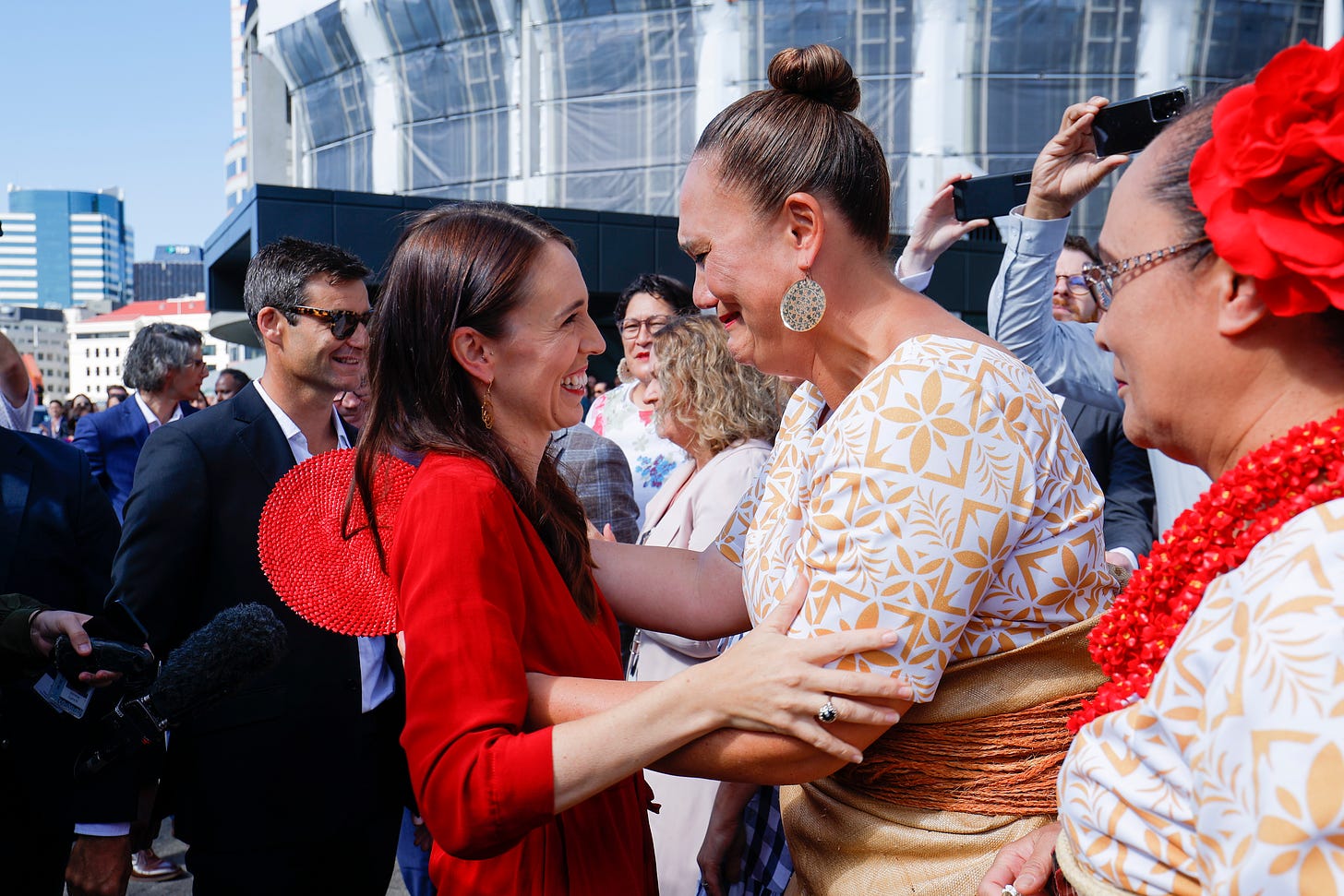The miseducation of Jacinda Ardern
Turns out the public doesn't want what technocratic neoliberals think it should want

New Zealand’s Prime Minister Jacinda Ardern had not even made it out of the building before the glowing tributes began pouring in. The iconic progressive leader tearfully announced last week that she was stepping down, exhausted, and was looking forward to a quieter life of parenting and planning her wedding.
Ardern was a darling of both the international media and the identitarian left — which these days are often indistinguishable — and so emotions are naturally running high.
But will the global smart set stop and reflect on the lessons to be learned here?
Will they wonder, even for a fleeting moment, why the politician that they’ve been fawning over does not have the support of her constituents?
Turns out no. The response to Ardern’s resignation, instead, has been to double down on the ideology that landed her in such hot water in the first place, with cries that her political downfall is to be blamed not on unpopular policies, but on misogyny.
And that her exit should be read as some sort of bold stance against female burnout. An attempt to centre women’s experience — a working mother’s radical act of self-care. Even, according to The Guardian, a symbolic strike against macho demagogues.
Such spin of course ignores the inconvenient truth that Ardern was staring down concerning polling numbers, and preparing for an election in October. And that the technocratic neoliberal ethos that Ardern embodies is currently being met with vocal protests worldwide.
This ethos is elitist, affluent, credentialed, centre-right on the economy and far left on cultural issues, and, during the pandemic, its proponents came under fire for advancing what Spiked’s Tom Slater has referred to as “kindly authoritarianism.” Which, in Ardern’s case, meant, among other things, implementing a two-tiered society for the vaccinated and the unvaccinated, and calling internationally for tighter restrictions on online speech, which she likened to “weapons of war.”
So it’s probably worth setting aside the colourful pantsuits, the megawatt smile, the pleasing platitudes, and the puff pieces on Ardern’s famed empathy, and asking the question many are now starting to ask: What shape has Ardern left her country in?
What do conditions look like on the ground, today?
New Zealand, as it happens, is in the midst of multiple crises: a housing crisis, a cost-of-living crisis, an inflation crisis, a healthcare crisis, and a crisis in violent crime.
And, as The New York Times points out, “extended lockdowns and vaccine mandates hurt the economy, fueled conspiracy theories and spurred a backlash.”
“She was originally elected on a promise to reduce inequality and, more importantly, child poverty,” another piece in the Times opines. “But New Zealand today feels as unequal as when Ms. Ardern was elected.”
64 percent of citizens feel like the nation has become more divided.
Branco Marcetic, writing in Jacobin, notes that “Ardern, who has described herself as a ‘democratic socialist,’ presided over an enormous upward transfer of wealth and an explosion in economic hardship that affects even middle-class Kiwis.”
Under her governance, New Zealand has witnessed what economist Shamubeel Eaqub has described as the “rise of the landed gentry, with wealth and housing opportunities becoming more hereditary.”
So, “despite being hailed as the harbinger of a new, progressive Left,” Tom Chodor concludes in UnHerd, “Ardern simply turned out to be more of the same.”
New Zealanders, unsurprisingly, are not happy.
The lesson here is that material conditions matter. Food, shelter, safety, personal freedom, and healthy communities — politicians ignore these basic human needs at their peril.
Jacinda Ardern’s fall from grace demonstrates that people still value results over rhetoric. And are increasingly fed up with the politics of neoliberal technocrats.
Justin Trudeau may want to take note.




Thank you for this.
I am not sure if I should cry or celebrate as the discourse is becoming more & more unhinged. Anyone who dares to question the narrative is denounced as a crazy, which makes sane discourse impossible. Lies have become truths and there is no obligation to tell the truth about your enemies, which makes accountability impossible. Here in Alberta, it looks like the CBC & the NDP are simply making things up with respect to Daniel Smith. What they fail to understand, is that when criticism of Daniel Smith is made up, it is no longer possible to have legitimate discussion. It also means, that the CBC and the NDP are signaling that they are unwilling to discuss legitimate grievances that many citizens have with respect to how COVID was dealt with the last 2 years. The end result of this will be chaos and disfunction.
"The lesson here is that material conditions matter. Food, shelter, safety, personal freedom, and healthy communities — politicians ignore these basic human needs at their peril."
I adore your candid and honest writing Tara. Thank you for being a fresh voice for Canadians. We have been left feeling unheard and attacked as Canadians, with a dictating authoritarian government in power. I am keeping a special bottle of Port, almost 100 years old(and was a cherished gift) for the celebration when Trudeau is dethroned and Freeland runs back to whatever hole she climbed out of. We are patiently waiting for a new guard. And you dear lady are a pivotal respected journalist, that brings enlightenment and hope. You have our gratitude.